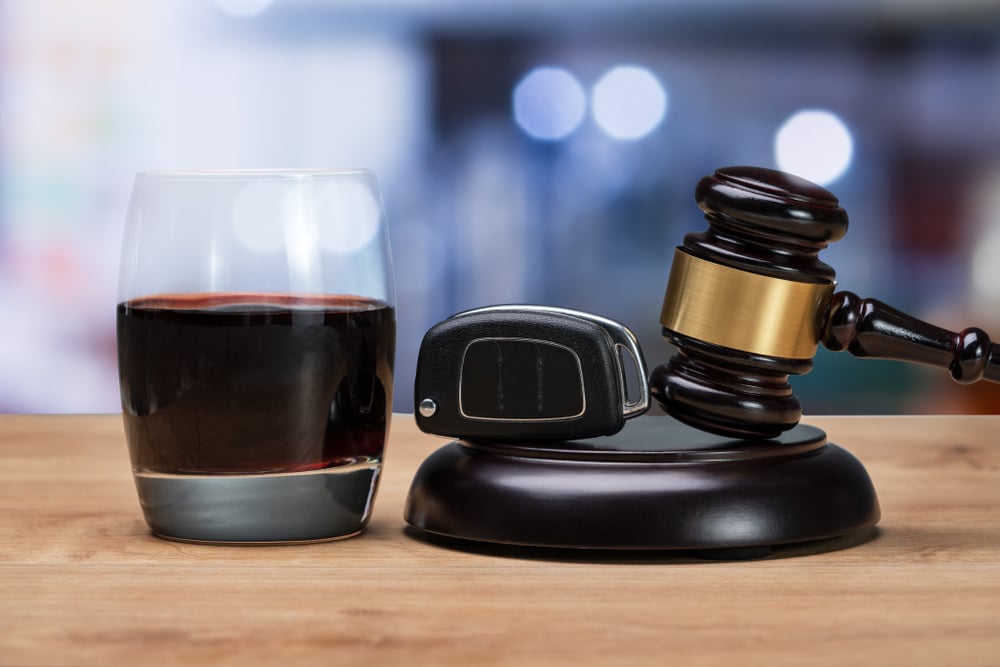
Mississippi maintains strict driving under the influence (DUI) laws with a legal blood alcohol concentration (BAC) limit of 0.08% for regular drivers, 0.04% for commercial drivers, and a “zero tolerance” policy for drivers under 21. The state employs a combination of criminal and administrative penalties, creating a comprehensive enforcement framework that emphasizes both deterrence and rehabilitation.
Law enforcement agencies across Mississippi coordinate efforts through state and local partnerships, focusing on high-risk periods and locations. The state’s approach combines traditional patrol methods with modern technology and data-driven enforcement strategies, particularly in areas with historically high DUI incident rates.

0.08% or higher for regular drivers and 0.04% for commercial drivers

Yes

120 days

Mandatory

No
Mississippi’s DUI landscape reflects distinct challenges between urban and rural areas, with particular emphasis on addressing impaired driving in rural regions where limited public transportation options exist. The state’s geographical diversity, from coastal areas to rural communities, requires adapted enforcement strategies and resource allocation.
Recent data indicates concentrated DUI incidents along major highway corridors and near entertainment districts, leading to targeted enforcement efforts in these areas. The state’s warm climate and year-round outdoor activities create unique challenges for law enforcement, particularly during major events and holiday periods.
Mississippi employs a tiered penalty system for DUI offenses, with increasing severity for repeat offenders. First-time offenders face potential jail time of up to 48 hours, fines ranging from $250 to $1,000, and license suspension for 90 days to one year. The state uses a five-year lookback period for determining repeat offenses, with third and subsequent offenses classified as felonies.
Enhanced penalties apply for aggravating factors such as high BAC levels (0.15% or higher), accidents resulting in injury or death, and the presence of minors in the vehicle. The state maintains mandatory minimum sentences and requires participation in alcohol safety education programs for all offenders.
Mississippi law addresses specific DUI scenarios including watercraft operation, commercial vehicles, and cases involving controlled substances. The state maintains separate but related regulations for operating boats and other recreational vehicles while impaired, reflecting the importance of water recreation in the state.
Drug-impaired driving cases receive particular attention, with specific provisions for both illegal substances and prescription medications. The state’s implied consent laws extend to chemical testing for drugs, with test refusal carrying additional administrative penalties.
Mississippi law enforcement utilizes both routine patrols and specialized DUI enforcement operations. Officers employ standardized field sobriety testing protocols and are increasingly trained in advanced impairment detection techniques. The state conducts regular sobriety checkpoints and saturation patrols, particularly during high-risk periods.
Enforcement strategies incorporate data analysis to identify high-risk locations and times, enabling more effective resource deployment. The state maintains a network of Drug Recognition Experts (DREs) to assist in complex cases, particularly those involving drug impairment or combinations of substances.
Mississippi utilizes modern detection and testing equipment throughout its enforcement network. Primary tools include portable breath testing devices for roadside screening and more sophisticated evidentiary testing equipment at detention facilities. The state maintains strict protocols for equipment calibration and maintenance to ensure accuracy and admissibility of test results.
Recent technological implementations include enhanced mobile data systems and digital evidence collection tools. The state has also expanded its capabilities for drug detection, including advanced laboratory testing methods and roadside drug screening devices.
Mississippi’s approach to DUI rehabilitation combines mandatory education programs with treatment options based on individual assessment results. The state maintains a network of certified treatment providers offering programs ranging from basic education for first-time offenders to intensive treatment for repeat offenders.
Programs incorporate evidence-based practices including cognitive behavioral therapy and substance abuse counseling. The state has expanded access to treatment through regional facilities and, increasingly, telehealth options to serve rural communities.
All DUI offenders in Mississippi must complete a court-approved alcohol safety education program. Additional treatment requirements are based on offense severity and assessment results. The framework includes specific provisions for different offender categories, including youth offenders and repeat offenders.
Treatment compliance is typically monitored through probation services and is often a condition for license reinstatement. The state maintains minimum program standards while allowing providers to tailor treatment approaches to individual needs.


Mississippi employs various monitoring methods to ensure offender compliance with court-ordered requirements. These include regular probation meetings, random drug and alcohol testing, and electronic monitoring when mandated. The state has implemented remote breath testing systems for high-risk offenders, allowing for more frequent monitoring without excessive staffing requirements.
Violations of compliance requirements trigger graduated sanctions, ranging from increased monitoring to immediate incarceration. The state maintains a coordinated reporting system between treatment providers, probation officers, and courts to ensure quick response to non-compliance.
The state operates parallel administrative and criminal processes for DUI offenses. The administrative process, managed by the Department of Public Safety, handles license suspensions and reinstatement requirements independently of criminal proceedings. This system allows for swift administrative action while criminal cases proceed through the courts.
Administrative actions can take effect shortly after arrest, typically within days, providing immediate consequences for impaired driving. The process includes provisions for temporary driving permits and installation of ignition interlock devices for eligible offenders.
Mississippi’s administrative procedures include specific timelines for license actions and appeals. Offenders have 30 days from notice to request administrative hearings challenging license suspensions. The process includes clear guidelines for temporary driving privileges and license reinstatement requirements.
The state maintains electronic records of all administrative actions, accessible to law enforcement and courts. These records are crucial for determining appropriate sanctions in subsequent offenses and monitoring compliance with administrative requirements.
Mississippi’s court system processes DUI cases through a structured sequence including initial appearances, preliminary hearings when applicable, and either plea agreements or trials. Some jurisdictions operate specialized DUI courts focusing on rehabilitation of repeat offenders through intensive supervision and treatment programs.
The court system emphasizes efficiency while protecting defendants’ rights, with many jurisdictions offering expedited processing for uncontested cases. The state has implemented digital case management systems and, where appropriate, virtual hearing options to improve court accessibility and efficiency.
Primary responsibility for DUI enforcement and management in Mississippi is shared among several key agencies. The Department of Public Safety oversees licensing and administrative penalties, while the Highway Patrol leads enforcement on state highways. The State Crime Laboratory handles chemical testing and analysis.
Local law enforcement agencies, county prosecutors, and municipal courts play crucial roles in enforcement and prosecution. The state’s Driver Services Division manages license reinstatement processes and maintains driving records. Coordination between agencies is facilitated through integrated information systems and regular inter-agency meetings.
Mississippi participates in the Interstate Driver License Compact, sharing DUI conviction information with other states. The state recognizes out-of-state convictions for enhancement purposes and reports Mississippi convictions to other states where offenders hold licenses.
Border enforcement coordination is particularly important given Mississippi’s location, with significant traffic flow between neighboring states. Special protocols exist for handling out-of-state offenders, including agreements with neighboring states for enforcement and prosecution.
Mississippi’s DUI laws apply statewide, but enforcement presents unique challenges in areas with overlapping jurisdictions, particularly near tribal lands and federal properties. The state maintains agreements with tribal authorities regarding enforcement and prosecution of DUI offenses within tribal territories.
Coastal areas present distinct jurisdictional challenges with multiple agencies operating in close proximity. Coordinated response protocols and mutual aid agreements help ensure consistent enforcement regardless of jurisdictional boundaries.
The financial burden of a DUI conviction in Mississippi typically ranges from $5,000 to $15,000 for a first offense, accounting for all direct and indirect costs. These expenses include court fines, legal fees, increased insurance premiums, and mandatory program costs. Repeat offenses or aggravating circumstances significantly increase these amounts.
The state allocates substantial resources to DUI enforcement and prevention, with annual expenditures covering enforcement, prosecution, and prevention programs. While fines and fees help offset these costs, the primary focus remains on public safety rather than revenue generation.


DUI incidents in Mississippi create significant societal costs extending beyond direct enforcement expenses. Annual economic impacts from healthcare expenses, property damage, lost productivity, and fatalities are estimated to exceed $400 million statewide. These costs affect healthcare systems, insurance providers, employers, and taxpayers throughout the state.
Rural communities often bear a disproportionate burden due to limited emergency response resources and longer transport times to medical facilities. Studies indicate that each prevented DUI incident saves the state approximately $40,000 in combined social costs.
Mississippi’s legislature regularly reviews and updates DUI laws to address emerging challenges and incorporate new technologies. Recent legislative focus includes strengthening penalties for drug-impaired driving, expanding ignition interlock requirements, and enhancing penalties for high-BAC offenses. Proposals under consideration include lowering the legal BAC limit and implementing mandatory minimum sentences for repeat offenders.
The state is moving toward more comprehensive approaches that balance enforcement with prevention and treatment. Current legislative trends indicate increased support for treatment programs and monitoring technologies, particularly for rural areas where access to services has historically been limited.
Mississippi continues to modernize its DUI enforcement system through technology adoption. Recent implementations include digital evidence management systems, automated license plate readers, and enhanced chemical testing capabilities. The state is evaluating emerging technologies for both enforcement and rehabilitation programs.
Integration efforts focus on improving data sharing between agencies and enhancing real-time access to offender information. Mobile applications for law enforcement and compliance monitoring represent the latest additions to the technological framework.
Current challenges include addressing the rise in drug-impaired driving, particularly involving prescription medications and synthetic drugs. The state is developing new protocols and training programs to address these emerging threats while maintaining constitutional protections.
The increasing complexity of chemical testing for newer substances presents ongoing challenges for enforcement and prosecution. Mississippi continues to adapt its approaches while ensuring fair and effective enforcement practices.
Mississippi maintains comprehensive prevention strategies combining public education, targeted interventions, and community engagement. Programs focus on high-risk populations, including young drivers and repeat offenders. School-based initiatives reach students before driving age, while public awareness campaigns target adult drivers through various media channels.
Recent initiatives leverage social media and digital platforms to reach broader audiences, particularly younger demographics. The state partners with educational institutions, community organizations, and private sector entities to extend the reach of prevention messages and resources.
DUI convictions in Mississippi can significantly impact employment opportunities, particularly in positions requiring driving or professional licenses. Commercial drivers face severe consequences, with potential career-ending implications due to federal regulations. Many employers maintain strict policies regarding DUI convictions, affecting both current employment and future job prospects.
Professional license holders may face additional consequences through their licensing boards. While state law provides some protections for older convictions, employers can consider DUI convictions in hiring decisions, particularly for safety-sensitive positions or roles requiring driving.
Mississippi’s treatment programs show varying success rates, with completion rates averaging 65% for court-ordered programs. Success metrics indicate reduced recidivism rates among program graduates, particularly those participating in comprehensive treatment and monitoring programs. The state’s specialized DUI courts report significantly lower repeat offense rates compared to traditional court processing.
Program effectiveness varies based on factors including offense severity, participant engagement, and available support systems. Recent data shows particularly strong outcomes for programs incorporating both treatment and monitoring components, with recidivism rates reduced by up to 50% for successful participants.
DUI convictions in Mississippi typically result in significant insurance premium increases, often doubling or tripling rates for three to five years. Insurance companies classify DUI offenders as high-risk drivers, requiring maximum coverage levels and potentially restricting coverage options. Many insurers require SR-22 certification following a conviction.
The state maintains strict oversight of insurance requirements for DUI offenders, ensuring continuous coverage verification. Recent insurance regulation changes have expanded monitoring requirements and increased minimum coverage levels for convicted drivers.


Mississippi requires SR-22 certification for drivers convicted of DUI, providing proof of financial responsibility through special insurance documentation. The requirement typically extends for three years, with immediate notification to the state if coverage lapses. Failure to maintain SR-22 certification results in automatic license suspension.
The costs associated with SR-22 requirements include both higher premium rates and filing fees. Insurance companies must notify the state of any coverage changes or cancellations, creating an additional layer of monitoring for high-risk drivers.
DUI convictions often create lasting impacts on various aspects of daily life, from restricted mobility to increased financial strain. Many offenders face challenges maintaining employment, managing family responsibilities, and meeting court-ordered obligations while dealing with transportation limitations. The stigma associated with DUI convictions can affect personal relationships and social connections.
Recovery and rehabilitation efforts often extend beyond formal program requirements, with many individuals requiring ongoing support to maintain positive changes. The state’s focus on comprehensive rehabilitation includes addressing these quality of life impacts through support services and resource referrals.
Mississippi’s DUI enforcement system represents a multi-faceted approach combining strict enforcement with rehabilitation opportunities. The state maintains a comprehensive framework of criminal and administrative penalties, with consequences escalating based on factors including blood alcohol concentration, prior offenses, and aggravating circumstances. This structure reflects Mississippi’s commitment to public safety while providing pathways for rehabilitation and recovery.
The enforcement landscape incorporates modern technologies and coordinated efforts between multiple agencies. From initial detection through prosecution and rehabilitation, the state employs data-driven approaches and sophisticated monitoring systems. Law enforcement agencies utilize advanced detection equipment, standardized testing protocols, and coordinated patrol strategies. The administrative process operates parallel to criminal proceedings, ensuring swift consequences while maintaining due process protections. Special consideration is given to unique jurisdictional challenges, including tribal lands and coastal regions.
Financial implications of DUI convictions are substantial, with individual costs typically ranging from $5,000 to $15,000 for first offenses. These expenses encompass direct penalties, legal fees, insurance increases, and mandatory program costs. The broader societal impact extends to healthcare systems, employers, and communities, with annual costs estimated at over $400 million statewide. Insurance consequences are particularly significant, often requiring SR-22 certification and resulting in substantially higher premiums for several years.
Treatment and rehabilitation programs form a crucial component of Mississippi’s DUI response system. The state maintains a network of approved providers offering evidence-based interventions tailored to individual risk levels and needs. Program effectiveness data shows promising results, particularly for comprehensive programs combining treatment with monitoring components. The state’s specialized DUI courts demonstrate significantly reduced recidivism rates through intensive supervision and support services.
Looking forward, Mississippi continues to adapt its approach to address emerging challenges, including drug-impaired driving and new substance combinations. Legislative trends indicate movement toward enhanced penalties, expanded monitoring requirements, and strengthened prevention efforts. Technology integration remains a priority, with ongoing implementations of advanced enforcement tools, improved testing capabilities, and enhanced data sharing systems. These efforts reflect Mississippi’s commitment to maintaining effective DUI prevention and enforcement while adapting to changing circumstances and emerging threats.
At DUI 101, our mission is to empower you with the knowledge needed to make informed decisions during this challenging time. Explore our articles and guides to better understand your situation and the steps ahead.
© 2024 Chapman SEO LLC. This website is for educational and informational purposes only. All content is created using AI technology and maintained by non-lawyers and should not be considered legal advice. The information provided is general in nature and may not be suitable for your specific situation. Always consult with a qualified legal professional for advice regarding your individual circumstances. We do not create attorney-client relationships through this website. By using this site, you acknowledge that you have read and understand these terms.